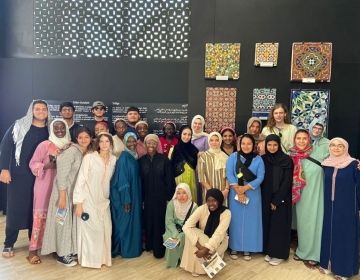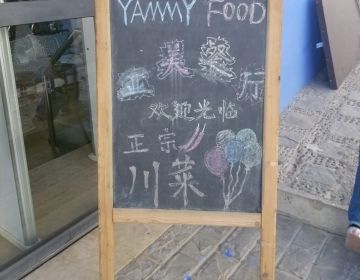A Guide to Your Pre-Departure Survival Darija
The linguistic landscape in Morocco is very diverse, with languages ranging from various Tamazight and Arabic dialects, as well as the colonial languages, French and Spanish, and a recent introduction of English into the school curriculum. However, CIEE’s programming predominantly focuses on Modern Standard Arabic (MSA) and Darija, Morocco’s colloquial Arabic dialect. In cities, students will mostly encounter Darija in day-to-day interactions, so we provide survival phrases in the language as part of the pre-arrival materials. While these phrases come with the homestay assignment, students looking to learn earlier need look no further than this post as we discuss some of the more important phrases students have recommended we teach as early as possible:
| English | Arabic Transliteration | Arabic |
| Hi, how are you? | Salam, labas? | السلام، لا باس؟ |
To say hello in Darija, we say “Salam,” which literally means peace, and then ask “labas?,” which roughly translates to “no bad?”
A note on script: As a dialect, Darija doesn’t have a standardized written form in Latin or Arabic script, so when multiple options are possible, just opt for consistency!
| English | Arabic Transliteration | Arabic |
| I’m fine, thanks | Labas, lhamdullah | لا باس، الحمد لله |
To say fine, Darija speakers will often respond to the initial question in echoing “labas” and then say lhamdullah, which means “praise be to God" and is common phrase in many different contexts.
| English | Arabic Transliteration | Arabic |
| What’s your name? | shnoo smiytek? | شنو سميتك؟ |
| My name is… | smiyti… | ...سميتي |
The word for “name” in Darija is “smiya” [ سمية ], and those familiar with Arabic grammar can modify possession using MSA’s possessive pronouns.
| English | Arabic Transliteration | Arabic |
| How old are you? | shHal f ‘emrek? | شحال ف عمرك؟ |
While you might want to avoid asking this question to people you don’t know well, as age can be a sensitive topic like in the U.S., the question is nevertheless a great conversation starter, especially with young host siblings!
| English | Arabic Transliteration | Arabic |
| I’m hungry | fiya lju’ | فييا الجوع |
| I don’t like spicy food | Makata’jbnish makla Herra | ما كتعجبنيش ماكلة حارة |
| I’m full, thanks | shaba’t, lhamdullah | شبعت، الحمد لله |
Literally translating to “in me is hunger,” the first phrase will let your family know you need some food. Just be careful, though, because our host families have some of the best food in Morocco and will make sure you get your fill!
During your stay in Morocco, you will also encounter the spice red Moroccan sauce, harissa, which is definitely worth a try, but if you’re not into spicy foods, the second phrase should come in handy.
| English | Arabic Transliteration | Arabic |
| Can I go to bed? | wakha nemshi na’ess? | وخا، نمشي ننعس؟ |
Also important host family Darija, this phrase is crucial after a long day of Arabic study and cultural excursions with CIEE!
| English | Arabic Transliteration | Arabic |
| No problem | Mashi mushkil | ماشي مشكل |
A common response to both sorry and thank you, mashi mushkil pops up everywhere in a Darija, so much so that one of our former students wrote a whole blog post about the phrase!
| English | Arabic Transliteration | Arabic |
| Goodbye | Bslama | بالسلامة |
In wrapping up this post, as with anything in Morocco, I thought I’d leave you in saying “with peace,” or “bslama!”
Author: Charlie Johnson
Related Posts

Study Abroad Morocco: The Ultimate Guide
Interested in exploring rich historical sites, brushing up on your Arabic language skills, and enjoying the most delectable cuisine imaginable, all while earning credits toward your degree and deepening your... keep reading

Visiting the Largest Mosque in Africa!
This week, the students had some cultural activities that introduced them to Islam's influence and relevance to Moroccan culture, traditions and everyday life. On Monday, the students had a brief... keep reading

“Salam, ça va?”: The Unique Linguistic Experience of Morocco
When I told people in my Arabic program back home that I was going to study abroad in Morocco, I received multiple warnings that I would struggle with the language... keep reading
